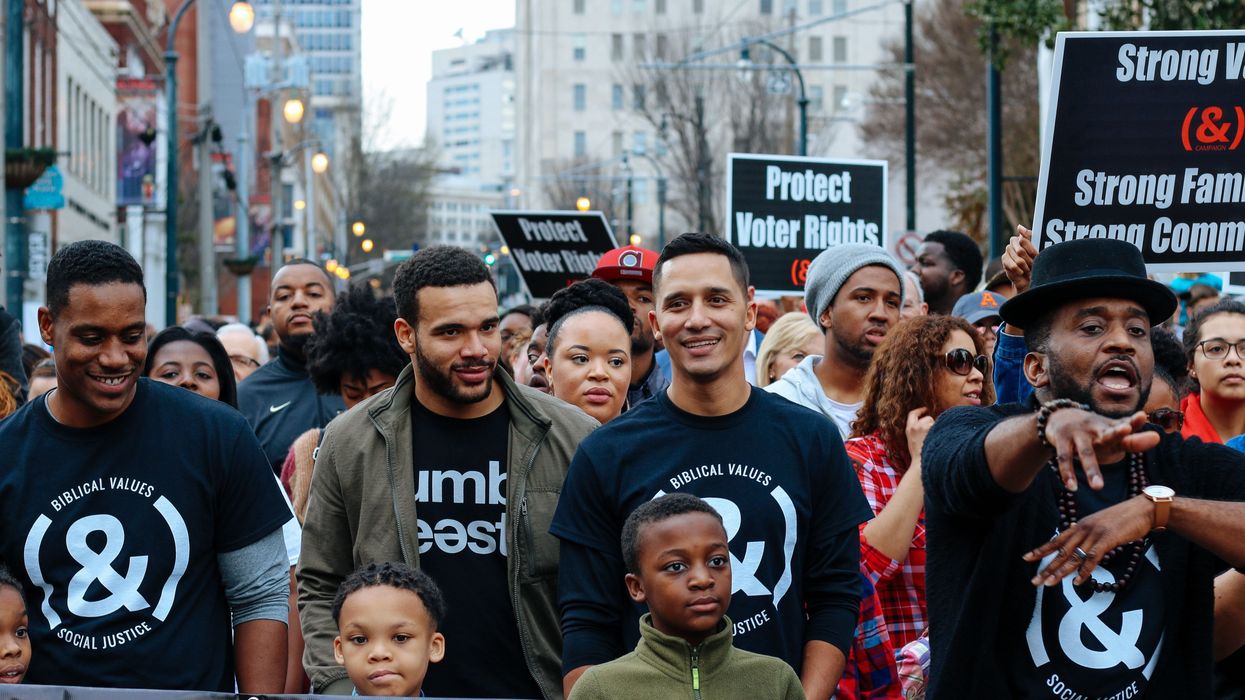Johnson is a United Methodist pastor, the author of "Holding Up Your Corner: Talking About Race in Your Community" (Abingdon Press, 2017) and program director for the Bridge Alliance, which houses The Fulcrum.
A growing movement seeks to rise above the partisan divide with faith-filled democratic solutions. Spearheaded by political strategist and cleric Justin Giboney and his organization, the “ And Campaign ” Civic Revival program represents a bold, refreshing endeavor to recalibrate the political compass toward a true north of common good and shared values. This bipartisan effort is not only commendable but necessary for the healing and progress of our nation.
Recent history reveals a nation increasingly riven by ideological extremes. Left against right, progressive against conservative — never before has the political chasm seemed insurmountable. The collateral damage of this war of ideologies is an erosion of civic engagement and bipartisanship, and a dilution of public discourse. Yet amid these varied divisions, the And Campaign's 2024 Civic Revival program sheds light on an alternative path: collaboration over confrontation, policy over partisanship.
At its core, the And Campaign calls upon Americans from across the political spectrum to rally around shared principles such as human dignity, equal justice, healthy families and government accountability. Giboney acknowledges that "our social and political issues are more complex than one political party can solve." This complexity dictates the need for solutions that transcend party lines — a rallying cry for pragmatism in an age often characterized by polarized stances.
But what makes the And Campaign's approach so compelling? Its foundation rests on the robust pillars of faith values and principled policy-making, an intersection rarely championed in the mainstream political discourse yet obviously craved by voters who feel caught between the rock of their moral convictions and the hard place of party affiliations. Giboney exemplifies this duality — an attorney and activist who is ordained clergy, his voice resonates with those who seek a political identity that does not forgo moral considerations for raw political gain. In this alignment, the And Campaign finds its strength: leveraging faith-based advocacy to mend societal rifts without sacrificing essential social justice virtues or ignoring economic pragmatism.
The campaign's focus on civic revival builds its momentum on grassroots participation, leveraging digital platforms to reach citizens tired of being passive spectators to political theater. By fostering dialogue and understanding through webinars, editorials, social media campaigns and virtual town halls, the And Campaign converts online activity into offline action — a much-needed venture in today's digitally dominated arena. Moreover, in advocating for bipartisan policies such as criminal justice reform and family support initiatives, Giboney and the And Campaign position themselves neither as disruptors nor conformists but as architects of a fairer future that honors both sides of America's political heritage.
Critics may argue that this vision is too idealistic — that bipartisanship in an era marked by extreme polarization is a pipe dream. Yet during such polarizing times, initiatives like the Civic Revival become most vital. They offer both refuge from partisan warfare and fertile ground for ideas that serve the common interest rather than that of special lobbyists or fringes. The examples set by historical figures such as Lincoln and King — who espoused unity during divisiveness — and modern-day leaders who work across the aisle demonstrate the possibility and effectiveness of bipartisan efforts when buttressed by mutual respect and a shared commitment to dialogue. The 2024 Civic Revival embodies these ideals fully in its programmatic efforts to demarcate common ground where there seems to be none.
Even as many enter 2024 with apprehension about electoral uncertainties and continued societal challenges — from economic recovery post-pandemic to addressing systemic inequalities — the And Campaign's leadership and initiative is imperative within our national conversation.




















Trump & Hegseth gave Mark Kelly a huge 2028 gift